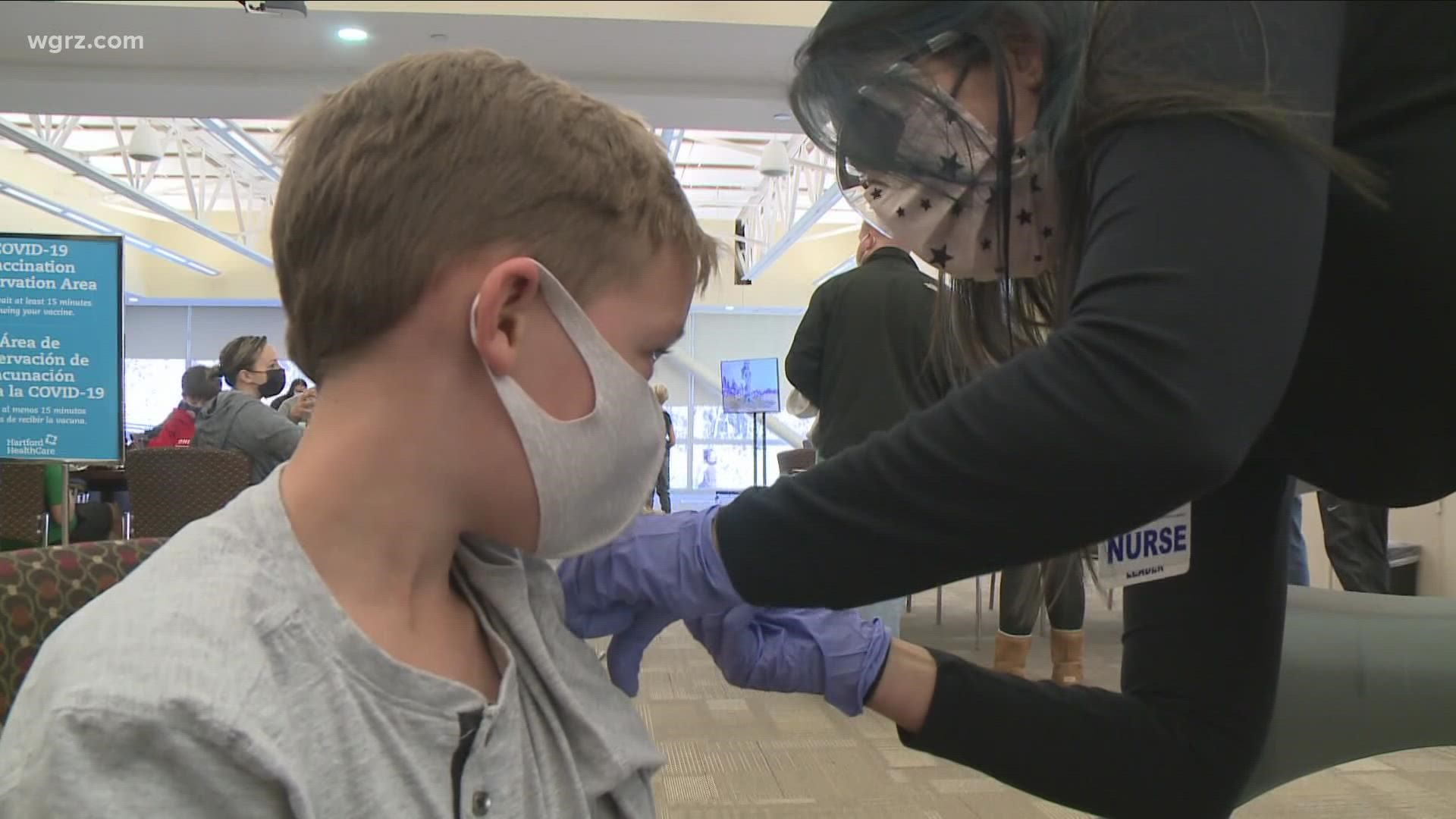BUFFALO, N.Y. — U.S. regulators have authorized the first COVID-19 shots for infants and preschoolers.
That paves the way for vaccinations for children under 5 to begin next week. The Food and Drug Administration's emergency use authorization Friday follows a unanimous recommendation by its advisory panel.
The kid-sized shots are made by Moderna and Pfizer. The FDA's action allows the companies to begin shipping millions of preordered doses across the country. A final signoff from the Centers for Disease Control and Prevention is expected this weekend.
The nation's vaccination campaign began with adults in late 2020, about a year into the coronavirus pandemic..
However, here in Western New York we still find vaccine hesitancy or resistance for some parents of small children.
Cheyenne Patterson is the mother of a four year old boy who says, "I would definitely say no. He's not ready yet. He's just a baby himself."
Leondra Miller, who has a 2-year-old daughter, agrees.
"I think they're too young and they're haven't been enough tests ran to even give something like that to a child. I just don't think their system is strong enough," Miller said.
They're not alone, as the Associated Press reports only 30 percent of kids ages 5 and 11 got the initial two doses after the availability for them started in November.
The impact on very young developing immune systems is something doctors have heard many times. Dr. Stephen Turkovich, Chief Medical Officer of Oishei Childrens' Hospital says as a pediatrician he tries to explain some main points to worried parents.
"Your immune system is constantly growing and developing and maturing from the minute you are born. We will vaccinate kids in the new born nursery against things like Hepatitis C, so we start sort of training the immune system very early on," Dr. Turkovich said.
So 2 On Your Side asked what about childhood allergies or other medical conditions?
"There's no contra indications to giving the vaccines if you allergies or if you have any other co-morbidities," Dr. Turkovich said.
But some parents may feel the vaccine testing trials in very young bodies were just too short with limited test subjects.
Dr. Thomas Russo, who is the Chief of Infectious Disease Studies at the University at Buffalo Jacobs School of Medicine, is aware of that concern as well.
"A lot of parents are waiting to see if these vaccines are safe. However, we now have a large body of data that demonstrates that these vaccines are extraordinarily safe," Dr. Russo said.
Dr. Turkovich also points out: "I've got kids that are 9 and 11. They got the vaccine when they were first eligible. If I had younger kids, I would definitely give it to them."
Dr. Russo added: "I think the other issue which is a bit of a misconception is that children are bulletproof. Fortunately children have fared much better in this pandemic than adults in terms of landing in hospital and having bad outcomes. But over 400 children have died."
He says about 1,000 children had to be hospitalized nationally with COVID and about half of number were healthy otherwise. Russo says some children have also suffered with so-called long haul COVID caused complications after their infection cleared,
Dr. Russo says that 400 child COVID death number is many more than child flu deaths in this country. He also says unvaccinated children might spread COVID to more vulnerable grandparents.
Dr. Turkovich had one final suggestion for parents in this discussion.
"Your pediatrician is your expert," Dr. Turkovich said. "By all means, talk to them and get the factual information you need in order to make a decision (about COVID vaccination for your child)."

